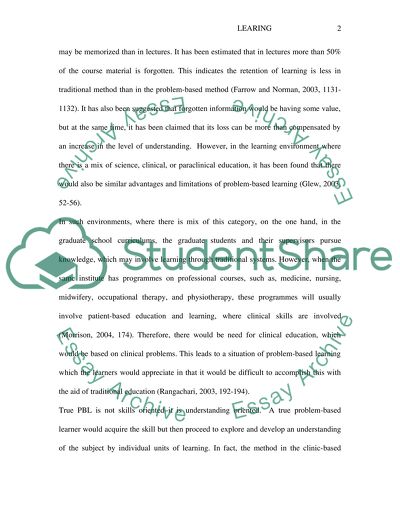Cite this document
(“Using the skills of problem-based learning in healthcare Term Paper”, n.d.)
Using the skills of problem-based learning in healthcare Term Paper. Retrieved from https://studentshare.org/health-sciences-medicine/1502568-using-the-skills-of-problem-based-learning-in-healthcare
Using the skills of problem-based learning in healthcare Term Paper. Retrieved from https://studentshare.org/health-sciences-medicine/1502568-using-the-skills-of-problem-based-learning-in-healthcare
(Using the Skills of Problem-Based Learning in Healthcare Term Paper)
Using the Skills of Problem-Based Learning in Healthcare Term Paper. https://studentshare.org/health-sciences-medicine/1502568-using-the-skills-of-problem-based-learning-in-healthcare.
Using the Skills of Problem-Based Learning in Healthcare Term Paper. https://studentshare.org/health-sciences-medicine/1502568-using-the-skills-of-problem-based-learning-in-healthcare.
“Using the Skills of Problem-Based Learning in Healthcare Term Paper”, n.d. https://studentshare.org/health-sciences-medicine/1502568-using-the-skills-of-problem-based-learning-in-healthcare.


